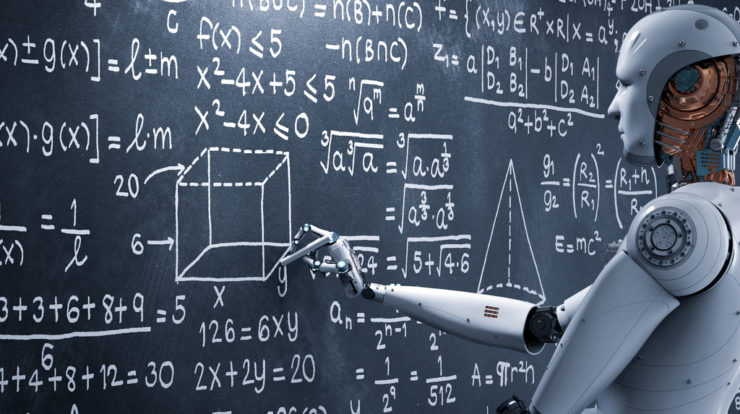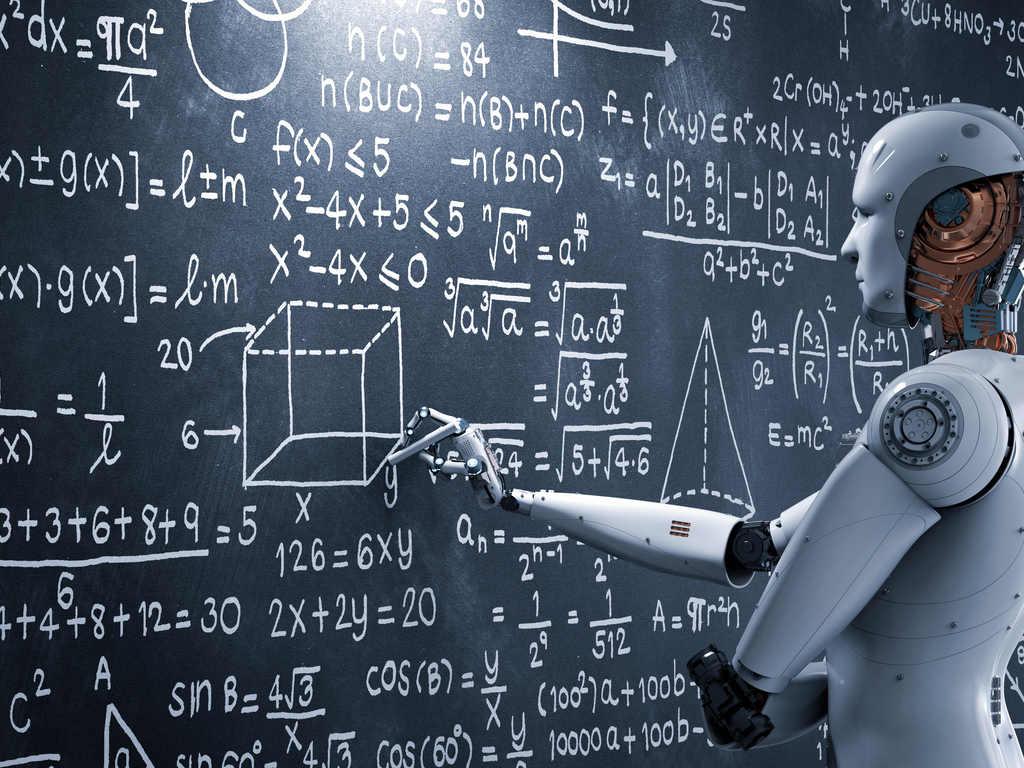
Fears about Artificial Intelligence
Stephen Hawking certainly didn’t allay fears about AI when he said, “artificial intelligence may replace humans altogether!” After reading this, nobody would believe that AI is here to help our teachers. Forget about helping teacher workload, he suggested it would take our jobs altogether. Furthermore, In 1951, Alan Turing (A.I. pioneer) speculated rather eerily that machines would “outstrip our feeble powers.” Now, in 2018, these are unsettling ideas to digest. A frequently cited Oxford University study even predicted that 47% of jobs are at risk.
At this point, you’re probably thinking: “We only want it to give us some time to put our feet up! We don’t want it to take our jobs!” But it’s impossible to ignore the ubiquitous presence of artificial intelligence when, as this concerning article on The New Yorker puts it:
Siri schedules our appointments and when Facebook tags our photos and subverts our democracy. Computers are already proficient at picking stocks, translating speech, and diagnosing cancer , and their reach has begun to extend beyond calculation and taxonomy… A.I.s have even worked out the modern riddle of the Sphinx: assembling an IKEA chair.
Not helping your fears at all am I? As some articles have even dubbed it, A.I could be the “villain” of higher education, or the bane of all teachers careers. If this is true, it doesn’t appear that A.I is helping our teachers at all. But does it have it be that way? The question remains: how can we use A.I. for our benefit?
Let’s flip the coin.
Why are teachers quitting the profession?
In October 2014, the government launched ‘The Workload Challenge’, a month-long survey asking teachers for their views on how to reduce unnecessary workload. The results may not be so surprising to teachers. Three of the biggest areas that can lead to unnecessary workload are:
- Marking
- Planning
- Data management
The chair of the Workload Advisory Group Professor Becky Allen said at the end of last year that “working hours in England are significantly higher than other countries”. With a record number of teachers quitting the profession due to increasing workload, under pressures in part fanned by Department of Education and Ofsted expectations, we must look to how we can better manage teaching time and reduce workload. If you want to find out why helping teachers to manage their workload is important for everyone, read our post here.
Teachers are here to nurture potential – to plant seeds and keep revisiting them. If our teachers are bogged down by unnecessary workload, we face an even bigger crisis nationwide: the future of our children. I can never forget how my History teacher took time out of her busy schedule in the morning to coach me on speaking in lessons. When she realised I wasn’t able to articulate myself, she took it upon herself to mentor me. It would have actually been a lifelong tragedy if she hadn’t intervened when she did, so thanks Mrs Bedford! That year I got my offer to study English Language and Literature at Oxford.
That’s what teachers are there for, but we’re losing our good ones. We certainly don’t want to lose them all. See, teaching doesn’t have a ‘one size fits all’ approach to success. We need our teachers to impart their expert knowledge and go the extra mile to create fertile grounds for the life-long education of their students. This is where A.I. comes in. AI can help our teachers, and here’s why.
How can A.I. help our teachers?

In your working time as a teacher, you’ve probably asked yourself a million times: ‘How can I reduce my workload?’ Perhaps you’re looking worriedly at the seemingly never-ending pile of scripts to mark. Here’s how A.I. can help:
-
Better class prep
With an assistant essay grader like Progressay, teachers can have more time for class preparations. During examination and test periods, teachers often become disorganised. This is because they do not get enough time for themselves. They spend all their free time grading papers carefully to ensure each student is given a fair mark, so they pay little attention to other activities. They go to bed late and then wake up extra early to begin preparations for their class the next day. Grading wouldn’t be so time consuming as it is with artificial intelligence, as teachers have more time to prepare for class. This is significant as it allows teachers to create more quality lessons, proving that A.I can indeed help teachers.
An example of the effectiveness of A.I. can be demonstrated by No More Marking, an online engine directed by Daisy Christodoulou. Remarkably, the inter-rater reliability of using the Comparative Judgement is 0.9.
-
Interaction with pupils
Interaction with pupils is a very important role for teachers. This is because pupils spend more time in school than anywhere else and teachers becomes their guide. While grading papers, a teacher will hardly have the time to interact with his/her students. This might cause the students to start acting up to get their teacher’s attention, stressing the teacher out even more. Artificial intelligence can help teachers by enabling them to engage with and become conscious of their students needs.
-
Higher Degrees
The majority of teachers have a desire to advance in their careers and attain higher degrees in order to increase their professional level. Based on the workload they deal with at school, this option simply isn’t feasible as teachers are unable to take classes or write these exams. A reduced workload means that teachers will be able to attend classes and increase their certifications. This is another way that artificial intelligence can further help our teachers, by giving them the option of Continuing Professional Development (CPD).
The salient purpose of artificial intelligence is to make human activities much easier and faster. A.I. is here to help our teachers, so we can focus on important class activities such as interacting with the students.
So now you can enjoy a good book while you put your feet up. How’s that for a change?
